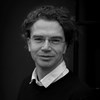founded
Completed: How do human norms form and change?
Many societies are dominated by norms that are, in the long run, harmful to their members. How can these norms change?
Peter Hedström elected a member of the Royal Swedish Academy of Letters, History and Antiquities
On the 6th of May, Peter Hedström was elected a member of the Royal Swedish Academy of Letters, History and Antiquities. The Royal Swedish Academy of Letters, History and Antiquities was founded in 175
Assessing knowledge of migrant sexual reproductive health and rights: a national cross-sectional survey among health professionals in Sweden
Frontiers in Sociology, sec. Migration and Society Abstract Despite the commitment of the Swedish government to ensuring equal access to Sexual Reproductive Health and Rights services for all citizens,

Future generations
Climate change is the biggest challenge of our time, and in this theme there is a focus on future generations and their living conditions. We aim to examine among other things climate ethics, sustainable development, green growth, obstacles to climate action and social dilemmas.

Jesper Roine
I am Professor of Economics at the Stockholm School of Economics. I am also Deputy Director at the research institute SITE (Stockholm Institute of Transition Economics). My main fields of research concern
Against the De Minimis Principle
Risk Analysis, https://doi.org/10.1111/risa.13445 Abstract According to the class of de minimis decision principles, risks can be ignored (or at least treated very differently from other risks) if the ri
Human Enhancement and Technological Uncertainty. Essays on the Promise and Peril of Emerging Technology
Doctoral thesis. KTH Royal Institute of Technology.ISBN 978-91 7595-341-0 Abstract Essay I explores brain machine interface (BMI) technologies. These make direct connection between the brain and a machi

Erik Mohlin
I am an associate professor (Swedish: docent) at the Department of Economics at Lund University as well as a researcher at the Institute for Futures Studies in Stockholm. My research is focused on game
National Culture Diversity in New Venture Boards: The Role of Founders' Relational Demography
Strategic Entrepreneurship Journal 13(3), 410-434. Abstract This study explains the conditions under which new venture boards are less or more culturally diverse in terms of their directors' country of b
Movie premiere! A New Society
Why do we need social progress? On July of 2014 a monumental task began as hundreds of the world's leading academics came together to set new standards for a just, secure and healthy global society. T has been tirelessly forming a non-partisan report addressed to all social actors, movements, organizations, politicians, and decision-makers in order to provide an architecture for present and future global issues and crises.








